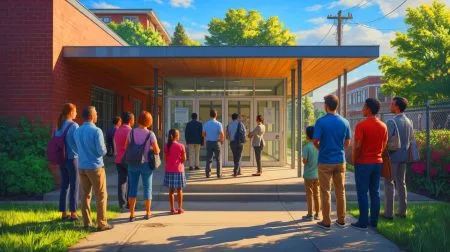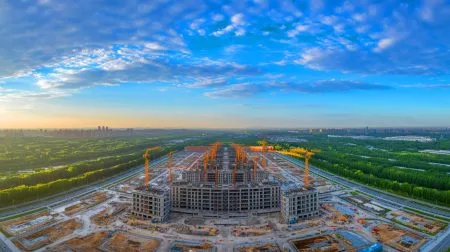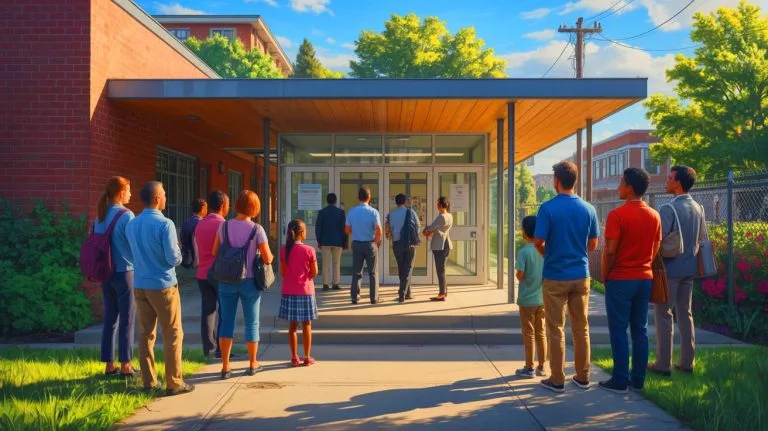| IN A NUTSHELL |
|
Mark Zuckerberg’s wealth saw a staggering increase of $85 billion in 2024. Yet, the closure of a school he founded for underprivileged children has highlighted the complexities of philanthropy tied to tech billionaires. The Primary School, envisioned as a beacon of hope for low-income families, now faces closure, leaving a void in the community it served. This situation raises questions about the sustainability of projects heavily reliant on the philanthropy of the ultra-wealthy, especially when broader financial support is lacking. As the school prepares to shutter its doors, the community is left grappling with the implications of this loss.
The Vision Behind the School’s Creation
In 2016, Mark Zuckerberg and Priscilla Chan embarked on an ambitious journey to revolutionize education through the establishment of the Primary School. Their vision was clear: integrate teaching, healthcare, and social services under one roof to provide equitable opportunities for California’s most disadvantaged children. This bold initiative, funded largely by the Chan Zuckerberg Initiative (CZI), aimed to dismantle the barriers low-income families faced in accessing quality education.
With around $100 million invested from 2018 to 2024, the school became a hub of hope and opportunity. It offered more than just education; it provided a community center that addressed various needs of the children and their families. Yet, despite this substantial financial backing, the school struggled to attain financial independence. It remained largely dependent on CZI, lacking significant external funding and public support.
Jean-Claude Brizard, the school board chairman, highlighted the inherent vulnerability in such a model. He noted, “If a project depends 100% or even 50% on philanthropy, it’s not a viable long-term model.” This reliance on a single source of funding ultimately played a pivotal role in the decision to close the school.
Financial Struggles Lead to Closure Announcement
In April 2025, the devastating announcement was made: the Primary School would close by the end of 2026. Although official statements were vague, reports from sources like The New York Times revealed that the withdrawal of funding by CZI precipitated a financial crisis. The school’s donations plummeted from $8 million in 2022 to $3.7 million in 2023, severely impacting its budget and operations.
The news was a heavy blow for families that relied on the school. Parents expressed their frustration, questioning the disconnect between Zuckerberg’s immense wealth, now exceeding $200 billion, and the closure of such a vital educational resource. One parent candidly remarked, “He’s a billionaire. Why would he close a school for poor kids?”
In response to the backlash, CZI announced a strategic shift in focus towards scientific research and artificial intelligence initiatives. This move reflects a broader trend where tech philanthropists increasingly prioritize investments in cutting-edge technology over community-based projects.
What the School’s Closure Reveals About Philanthropy
The closure of the Primary School underscores a significant challenge: philanthropic projects heavily reliant on single wealthy donors often struggle to sustain themselves without diversified support. For many in the community, the school was a symbol of possibility in a world where economic hardship often determines a child’s future. Its closure serves as a stark reminder of the fragility of charity models dependent on individual benefactors.
Reflecting on similar experiences, I recall volunteering at a neighborhood center primarily funded by one donor. When that financial support disappeared, the center closed, resulting in the loss of a critical community asset. This taught me that even the most well-intentioned initiatives require broad, consistent backing to endure and make a meaningful impact.
With Zuckerberg’s wealth surging as the school closes, it prompts crucial questions: How sustainable and impactful is philanthropy from the ultra-wealthy? Does immense financial capability necessarily equate to enduring social support, or do priorities shift with evolving public interests and technological advancements?
How Should Society Approach Billionaire Philanthropy
This scenario ignites a broader debate: Should billionaires like Zuckerberg be held accountable for ensuring their donations lead to sustained, lasting change? Alternatively, should it be the responsibility of communities, governments, and broader systems to prevent essential social projects from faltering when a single patron withdraws support?
These are complex issues with no straightforward solutions. However, they warrant reflection because the stakes—children’s futures—are incredibly significant. The discussion about the role of elite philanthropy in addressing social inequalities is ongoing and crucial.
What’s your perspective on this issue? Can elite philanthropy effectively address social inequality, or is a more systemic approach necessary? Share your thoughts and join the conversation about how we can build stronger, more resilient communities together.
Did you like it? 4.5/5 (24)








Isn’t it ironic that the school closes just as his wealth skyrockets? 🤔
Is it fair to blame Zuckerberg for the school’s closure, or should we look at the bigger picture?